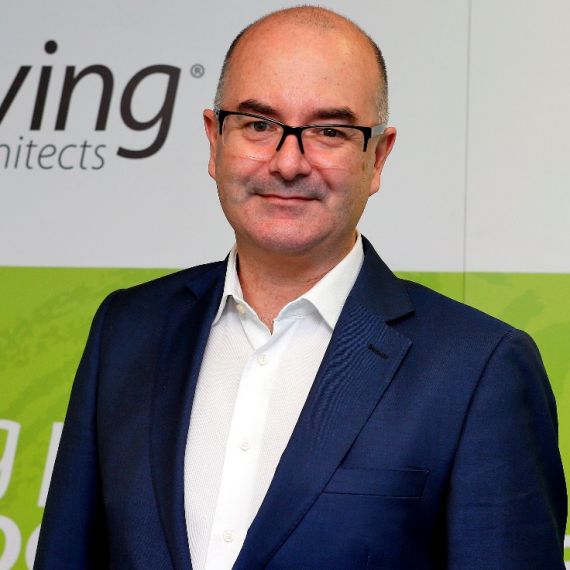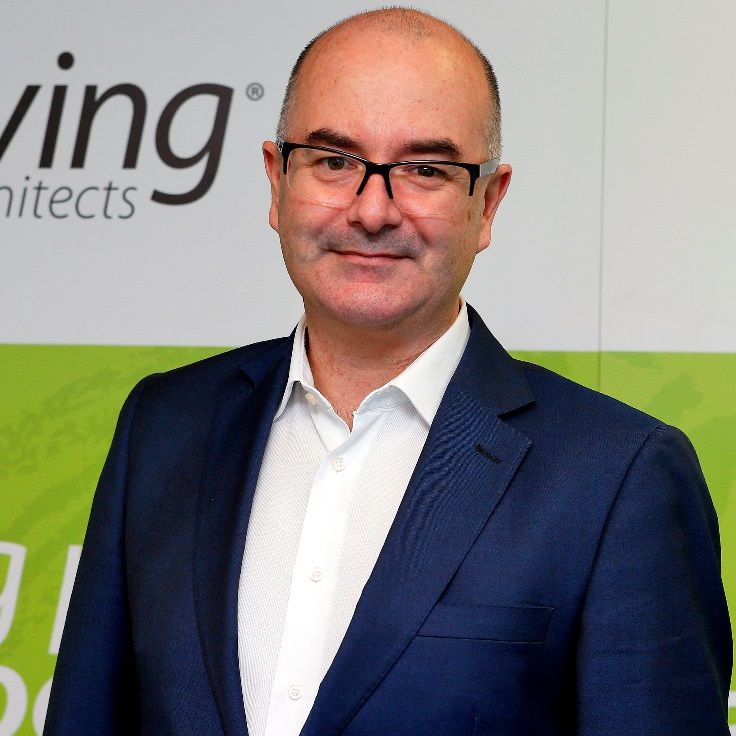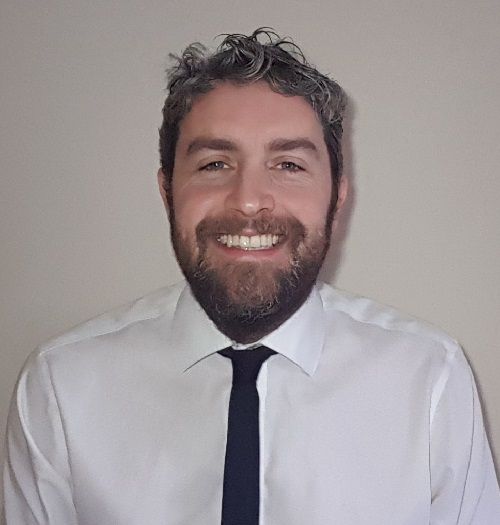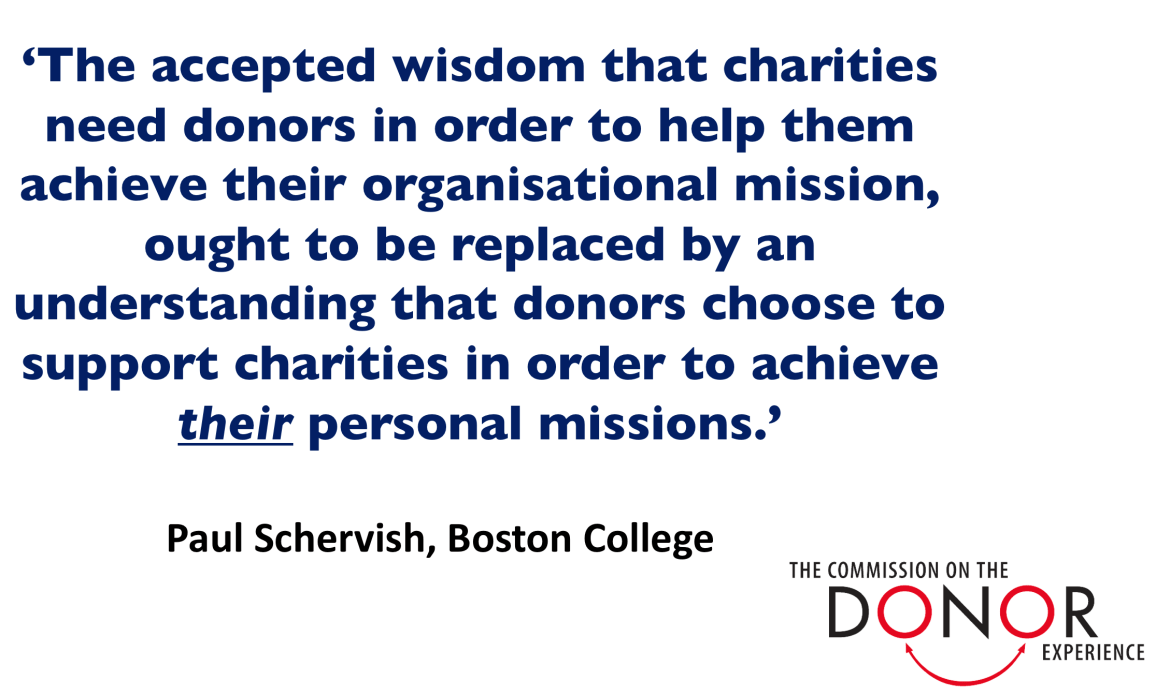 Ken Burnett - UK
Ken Burnett - UK
Godfather of Fundraising
Ken Burnett is a writer, communicator and inspirational speaker. He is author of several influential books on donor development and communication, including Relationship Fundraising, the Zen of Fundraising, Tiny Essentials of an Effective Volunteer Board and his most recent book, Storytelling Can Change the World, all available from the publisher at www.whitelionpress.com.
Chairman of Trustees at ActionAid from 1998 to 2003, Ken began his fundraising career with that charity in 1977 and since has been a leading fundraising strategist in the UK and around the world. He’s founder and managing trustee for SOFII, the Showcase of Fundraising Innovation and Inspiration and a trustee of the World Land Trust.
Twitter: @kenburnett1
 Sam Laparde, CFRE - CANADA
Sam Laparde, CFRE - CANADA
Director, Gryphon Fundraising | Radio Host, An Hour to Give | Strategist, SamLaprade.Com
Sam loves to connect people!
As a professional fundraiser Sam works closely with generous donors to impact some of the most vulnerable people in her community. Sam’s extensive experience, for close to three decades, in fundraising, media and municipal politics has created an impressive network of community and business leaders.
In 2009, Sam started as Director, Gryphon Fundraising. Ms. Laprade shares the importance of donor database analytics with fundraising professionals worldwide. In 2017, Sam launched her full-time consultancy to assist non-profits with fundraising strategy, stewardship, board relations, coaching and audits.
Twitter: @SamLapradeCFRE
 Clive Pedley, CFRE - NZ
Clive Pedley, CFRE - NZ
Director, Giving Architects & Impact Architects
Clive has been advising, coaching and training for growth in the social purpose sector in New Zealand and Australia since 2000. During that time he has been responsible for raising tens of millions for many of New Zealand’s leading charities. Clive is a former President of the Fundraising Institute of New Zealand (FINZ) from 2011 to 2013, was a member of the FINZ National Council from 2009 to 2015 and was named a fellow of the Fundraising Institute of New Zealand in May 2014. In 2017 Clive was appointed to the Responsible Investment Association of Australia Impact Investment Forum committee and has been directly involved in establishing New Zealand’s inaugural Impact Investment Advisory Board which has led to a sound understanding of traditional philanthropy and emerging international best practice in areas such as social impact investment.
 Abby Clemence - Australia
Abby Clemence - Australia
Founder, Infinity Sponsorship
Abby is one of Australia's leading corporate partnership experts.
She helps For-Profit and For-Purpose organisations unlock the secrets of great partnerships and her specialty lies in teaching fundraisers to build partnerships that create meaningful and sustainable impact. It doesn't matter if you're volunteering on a committee in your rural town, or working for a global charity - every single one of you is working for change and better outcomes.
Abby is in your corner and can teach you how to connect with right brands, master your skills and grow your income.
Twitter: @infinitysponsor
 Rachel Muir, CFRE - USA
Rachel Muir, CFRE - USA
Nonprofit Consultant, Trainer & Speaker, rachelmuir.com
Rachel Muir has worked every side of the Rubik’s cube that is the nonprofit sector. When she was just 26 years old, Rachel launched Girlstart, a non-profit organization to empower girls in math, science, engineering and technology in the living room of her apartment with $500 and a credit card. Several years later she had raised over 10 million dollars and was featured on Oprah, CNN, and the Today show.
Her career spans leading an online fundraising consulting practice and managing major gift portfolios for some of the country’s largest and most successful nonprofit brands.
Twitter: @rachelmuir
 Stephen George - UK
Stephen George - UK
Fundraising & Leadership Coach and Consultant
Stephen George is a Fundraising and Leadership Coach and consultant specialising in helping charity leaders become more entrepreneurial leaders who change behaviour and raise more money.
He is currently working on global strategies for international NGO’s and runs a leadership and coaching programme. He has over 30 years experience at all levels in the UK and internationally at NSPCC, UNICEF, RNIB, Action on Hearing Loss, Maggie’s and Scope and is a speaker, writer, podcaster and contributor to NGO’s. He is a former chairman of Remember a Charity, and a former Vice Chairman of the UK’s Institute of Fundraising. He is currently a trustee at CLIC Sargent.
Twitter: @stevgeorg
 Fi (Fiona) McPhee - NZ
Fi (Fiona) McPhee - NZ
Fundraising Strategist & Coach, Fiona McPhee Ltd
Fi (Fiona) McPhee loves fundraising. She’s been at it for 20 years and is still smiling.
Fi is a coach, consultant & trainer to fundraisers and not-for-profit leaders. She works with fundraisers to help them drive sustainable fundraising programs and with bosses and boards to seek the right insight to best manager and govern fundraising within their organisations. Fi brings to the party her love of data - having lead Australia & New Zealand’s largest fundraising benchmarking and analytics program for over a decade. Fi’s insight into fundraising performance and how donors behave is unparalleled. In addition to her day job Fi is a Mum, average skier, amateur hiker, serves on two not-for-profit boards and is the Resource Alliance Australia & New Zealand ambassador.
Twitter: @fimcphee
 Simon Scriver - Ireland
Simon Scriver - Ireland
Co-Founder, Organiser and Speaker, Fundraising Everywhere
Simon Scriver is a professional fundraising consultant, coach, trainer, practitioner, keynote speaker, podcast host and co-founder of the Fundraising Everywhere virtual experience.
Simon has won Fundraising Ireland's 'Small Budget, Big Impact' and ‘Supplier Of The Year’ Awards, Eircom’s Start-up Award, and was a 2019 finalist of Charities Institute Ireland’s Communications Agency of the Year. He is a TEDx speaker and has previously won the Toastmasters UK & Ireland International Speech Contest.
Simon also offers consultancy to some of the biggest and smallest charities in Ireland and abroad. He offers advice and training to non-profits to make their fundraising more cost-effective, speaking regularly at international conferences. He holds a Diploma in Fundraising and a Certificate in Fundraising.
Twitter: @toastfundraiser
Jump to Questions from a Week:
- Week One Questions
Answered by: Ken Burnett, Rachel Muir, Stephen George, Clive Pedley, Fi McPhee & Simon Scriver - Week Two Questions
Answered by: Ken Burnett, Rachel Muir, Stephen George, Clive Pedley, Fi McPhee, Abby Clemence & Simon Scriver - Week Three Questions
Answered by: Ken Burnett, Rachel Muir, Stephen George, Clive Pedley, Fi McPhee, Abby Clemence & Simon Scriver - Week Four Questions
Answered by: Ken Burnett, Rachel Muir, Sam Laprade, Stephen George, Clive Pedley, Fi McPhee, Abby Clemence & Simon Scriver - Week Five Questions
Answered by Ken Burnett, Rachel Muir, Sam Laprade, Stephen George, Clive Pedley, Fi McPhee, Abby Clemence & Simon Scriver
Video also features Michelle Berriman & Sean Triner
Watch Ask the Experts:
Week 5
Week Five Questions
What is the greatest fundraising lesson you have learnt during COVID19?
- Watch the Experts answer your question HERE
- Watch the Experts answer your question HERE
Week Four Questions
 Great question. A major national or international crisis can indeed provide the chance to accelerate a change that’s already been in process for some time, but isn’t happening quickly enough. The coronavirus crisis is a fine example of this. It presents a huge opportunity for the fundraising community to learn from what’s working at this time of great threat and upheaval, then, as the threat recedes, to accelerate the change thus demonstrated into everyday fundraising best practice.
Great question. A major national or international crisis can indeed provide the chance to accelerate a change that’s already been in process for some time, but isn’t happening quickly enough. The coronavirus crisis is a fine example of this. It presents a huge opportunity for the fundraising community to learn from what’s working at this time of great threat and upheaval, then, as the threat recedes, to accelerate the change thus demonstrated into everyday fundraising best practice.
Of course, I would say something like this, wouldn’t I? It’s well-known I’ve been agitating for change in the culture of fundraising for more than 30 years now. For me, the coronavirus crisis has reinforced rather than undermined my view of the change fundraisers need to see.
Immediate reactions to this current crisis seem to have broadly fallen into three camps:
- Stop communicating, stop spending. Cut communication and campaigns, keep our heads down, furlough staff and sack consultants then hope to ride out the storm without too much damage.
- Hit donors quickly and often with a barrage of emergency fundraising appeals.
- Take a donor-based, supporter experience approach. Give, before we get. Show supporters our concern for and interest in them and inspire them with the great things we do, together. Then, turn to those supporters who can and ask them very nicely, very properly, to help in this time of need.
Not surprisingly, I favour the latter, because all experience shows donors won’t let us down. Put simply, the culture-change I’d most like to see is fundraisers realising that we should focus all our fundraising strategies not on the money that people send, but on the well-being, comfort and continued inspiration and stewardship of the people sending it. Fundraisers’ best successes at this time of crisis embody some version of this approach. SOFII.org will shortly be publishing an article that will document and demonstrate that, contrary to wide expectations, fundraising results didn’t fall through the floor with the onset of Covid-19. Instead in many areas it thrived and will continue to thrive. But only because fundraisers resisted treating their donors as cash machines and instead showed them real, practical interest and care. From this a fundraising truism is beginning to emerge. If you treat donors brilliantly, they will rise to your support unstoppably. This realisation reinforces another undeniable fundraising truth. If giving is a good experience, donors will do more of it. If it isn’t, they’ll soon stop.
This isn’t rocket science. And the coronavirus has confirmed it. Now, combine this with the realisation that giving is good for you, reduces stress and boosts brain performance making the giver smarter, stronger and more successful, and we really will have an irresistible proposition. Hooray!
 The #1 thing that you should do now to prepare is to build deep strong relationships with your donors. Get to know them. Now is an opportune moment to show you deeply care about them and comfort them. As isolated and alone as we all feel we’re in this together. We’re all watching the same grim news reports, staying at home, just marinating in fear, worry and concern. Many of us feel alone, disconnected and unsure about the future and your donors may feel the same. Call on them to check on them and see how they are. A question like “how are you?” may seem small but in times like this it’s loaded. Listen and empathize. If this feels too terrifying to you entrust this important task to a leader in your organization who is not afraid to be vulnerable and empathetic. Your donors will not forget you for it. These are not normal times. In a crisis we step up. These are the defining moments that can develop a friendship relationship from a transactional one. Now is the time for empathy, gratitude and vulnerability.
The #1 thing that you should do now to prepare is to build deep strong relationships with your donors. Get to know them. Now is an opportune moment to show you deeply care about them and comfort them. As isolated and alone as we all feel we’re in this together. We’re all watching the same grim news reports, staying at home, just marinating in fear, worry and concern. Many of us feel alone, disconnected and unsure about the future and your donors may feel the same. Call on them to check on them and see how they are. A question like “how are you?” may seem small but in times like this it’s loaded. Listen and empathize. If this feels too terrifying to you entrust this important task to a leader in your organization who is not afraid to be vulnerable and empathetic. Your donors will not forget you for it. These are not normal times. In a crisis we step up. These are the defining moments that can develop a friendship relationship from a transactional one. Now is the time for empathy, gratitude and vulnerability.
 The long game will require a collaborative spirit when it comes to the sector as a whole. There may be opportunities to merge smaller or medium sized organizations and while this may be frightening for some it can be a positive step towards a stronger non-profit sector in the future. Looking over the fence at an organization that does similar work to see if there is a opportunity to become one with you may mean less administration but more programming. It may mean one board of directors putting out a call to another knowing that all board members may not be needed in the same way. Non-profit leadership at this time will need some brave steps. It also means that this type of collaboration is better for the people receiving services and support. It may may more economical sense at a time when donor dollars are more precious than ever.
The long game will require a collaborative spirit when it comes to the sector as a whole. There may be opportunities to merge smaller or medium sized organizations and while this may be frightening for some it can be a positive step towards a stronger non-profit sector in the future. Looking over the fence at an organization that does similar work to see if there is a opportunity to become one with you may mean less administration but more programming. It may mean one board of directors putting out a call to another knowing that all board members may not be needed in the same way. Non-profit leadership at this time will need some brave steps. It also means that this type of collaboration is better for the people receiving services and support. It may may more economical sense at a time when donor dollars are more precious than ever.
When I think about what each of us can do for our own organizations at this time, my mind goes immediately to donor database analytics! This is an area that I specialize in so I may be a bit bias but I truly believe this is a fabulous time to look at your database in another light. If we think of our donor databases as the treasure we build upon in any non-profit, it is the perfect time to look deeply at that treasure. From your second gift conversion to donor attrition to reactivation to renewal, these metrics will help to provide a baseline at this time. Also important to ensure we analyze RFM (recency, frequency and monetary) too. Looking at your long term donor value will also be an important metric as it can show how important it will be to continue to acquire new donors and steward the donors you have currently. Using data analytics and adding stewardship during this time is an important recipe for donor retention.
 This is a key question ...so the sequence we have followed is Crisis, then Contingency, then recovery then opportunity. In this we move from response routed in survival to when things become a kind of odd norm to when you can recover. The secret of course is to try to make crisis and contingency decisions with one eye in what that longer-term view might be. Easier said than done but possible, nevertheless.
This is a key question ...so the sequence we have followed is Crisis, then Contingency, then recovery then opportunity. In this we move from response routed in survival to when things become a kind of odd norm to when you can recover. The secret of course is to try to make crisis and contingency decisions with one eye in what that longer-term view might be. Easier said than done but possible, nevertheless.
People and organisations are reappraising priorities, For many inconceivable scenarios that were either never imagined or may have been imagined now become possible, so a key moment will be to open yourselves up to anything. For organisations there will be revolution. Charities must learn fo focus on core purpose and for those who have diversified services there me be a cut back to core. Some will change funding completely. Some will explore radical change. Key to recovery will be basics. Audience, purpose, case for support, infrastructure and capability and channels. So basics mean focus and in this there could be an amazing explosion in innovation and creativity. In this space, review your operation and the very fundamentals, look for the gaps that you knew were there and decide if they are still true and if so, be bold and act. Digital for instance. Stop, start and continue is a great exercise. Review income sources, risk and opportunity, and think strategically rather than tactically. engage your teams. Involve and consult. In this, don't be afraid to pull in the coaches, the challengers, the hand holders, the strategists, the creatives. It’s not the time to be alone both organisational, in your team and personally.
 As a sector now is the time for Government, business and the public to become increasingly aware of their reliance on the for-purpose sector to support and maintain the type of society we enjoy and benefit from. It is not well understood. For example, an article this week quoted Stats NZ saying the sector contributes $12bn per year, but we already know that the revenue is/was over $25bn, more than double, and largely all spent year on year. A collective voice is a critical element in this challenge and FINZ has a key role there as one of just a few key peak bodies, but I do think at the moment we are still too fragmented as a whole. This has been a constant challenge in the past and is now more critical. It is essential that the facts about impact, scope and scale are better known so that Government, business and the public understand the importance of continuing to practically support an essential and broad sector.
As a sector now is the time for Government, business and the public to become increasingly aware of their reliance on the for-purpose sector to support and maintain the type of society we enjoy and benefit from. It is not well understood. For example, an article this week quoted Stats NZ saying the sector contributes $12bn per year, but we already know that the revenue is/was over $25bn, more than double, and largely all spent year on year. A collective voice is a critical element in this challenge and FINZ has a key role there as one of just a few key peak bodies, but I do think at the moment we are still too fragmented as a whole. This has been a constant challenge in the past and is now more critical. It is essential that the facts about impact, scope and scale are better known so that Government, business and the public understand the importance of continuing to practically support an essential and broad sector.
Individually, the importance of understanding how you know you make a difference and then demonstrating that effectively will become increasingly important. Clearly understanding your Theory of Change and how you assess your impact will be essential once the initial ‘urgency’ subsides and a new normal settles in. This is not the sole responsibility of the fundraiser. Organisational leadership will become increasingly aware, because of their success or failure, that donors give to organisations that meet needs, not to organisations that have needs. Meeting needs means knowing your impact and the whole organisation is part of demonstrating that effectively. From there it is about great communication that proudly asks for partnership in impact through financial support. Do these things better to position for future success.
 Assuming you are surviving the impacts of the pandemic on your organisations ability to deliver services/programs in the short-term (meaning you are looking after the money, have acted quickly and have made firm decisions about what has needed to change or flex) then this is an opportunity. A time for change, because if you can't change now, when can you? Now is the opportunity to design what you want / need to look like after this and work your way backwards. I'm not talking about what your event may look like or how many appeals you send and when, I'm talking about the ambition to seek your mission and what it will take from fundraising working together, not against or outside of, your program delivery to get there. Prior to the pandemic, but more so over the past few months, I have witnessed much mission creep (moving away or beyond your mission goals) particularly in fundraising. What your future success could be, should focus on your core mission (or do you need to review your mission as your first step?). Assessing your organisational and team belief in this, the focus on this and the systems you have in place to enable this is a good place to start. Really great fundraising comes from having a clear ambition that everyone believes in, everyone is focused on and you have the systems in place to support the pursuit of.
Assuming you are surviving the impacts of the pandemic on your organisations ability to deliver services/programs in the short-term (meaning you are looking after the money, have acted quickly and have made firm decisions about what has needed to change or flex) then this is an opportunity. A time for change, because if you can't change now, when can you? Now is the opportunity to design what you want / need to look like after this and work your way backwards. I'm not talking about what your event may look like or how many appeals you send and when, I'm talking about the ambition to seek your mission and what it will take from fundraising working together, not against or outside of, your program delivery to get there. Prior to the pandemic, but more so over the past few months, I have witnessed much mission creep (moving away or beyond your mission goals) particularly in fundraising. What your future success could be, should focus on your core mission (or do you need to review your mission as your first step?). Assessing your organisational and team belief in this, the focus on this and the systems you have in place to enable this is a good place to start. Really great fundraising comes from having a clear ambition that everyone believes in, everyone is focused on and you have the systems in place to support the pursuit of.
 I truly believe that the charities that are able to be authentic, active and relevant right now, will be the ones that stay relevant when things begin to return to 'normal' (whatever that may look like). Of course, not every organisation or program is able to stay open right now, but when this 'winter' passes, there will be many charities hoping to bloom in the 'spring' and relaunch events, programs and services and there will be ALOT of noise. I think there needs to be a short term (triage), mid term and long-term strategy in place. Right now (and for the next 6-12 months) I believe that protecting revenue and relationships is vital. Ensuring that you support your team, minimise expenses, and maximise resources are among the priorities I see. Future planning should be simultaneously happening now too, including how will the expectations of your leadership need to be 'reset' (ie will you likely lost revenue from partnerships, if so how much?) and how might once-siloed groups be developed into multi-functional teams to help lend their shoulder to the wheel where it's needed most? I would personally be looking for opportunities to develop new relationships now (not ask for money), reimagine service delivery a different way, and look for opportunities to collaborate and grow your footprint and leadership expertise.
I truly believe that the charities that are able to be authentic, active and relevant right now, will be the ones that stay relevant when things begin to return to 'normal' (whatever that may look like). Of course, not every organisation or program is able to stay open right now, but when this 'winter' passes, there will be many charities hoping to bloom in the 'spring' and relaunch events, programs and services and there will be ALOT of noise. I think there needs to be a short term (triage), mid term and long-term strategy in place. Right now (and for the next 6-12 months) I believe that protecting revenue and relationships is vital. Ensuring that you support your team, minimise expenses, and maximise resources are among the priorities I see. Future planning should be simultaneously happening now too, including how will the expectations of your leadership need to be 'reset' (ie will you likely lost revenue from partnerships, if so how much?) and how might once-siloed groups be developed into multi-functional teams to help lend their shoulder to the wheel where it's needed most? I would personally be looking for opportunities to develop new relationships now (not ask for money), reimagine service delivery a different way, and look for opportunities to collaborate and grow your footprint and leadership expertise.
 On an individual level I guess we can treat people kindly. As always. We will get through this and we will come out the other side in some shape or form. When people struggling right now are back on their feet and ready to fight, they will remember who was kind.
On an individual level I guess we can treat people kindly. As always. We will get through this and we will come out the other side in some shape or form. When people struggling right now are back on their feet and ready to fight, they will remember who was kind.
As a sector, it's time to work with the public to protect ourselves from future mishandling and mistakes from the shower of eejits currently in power (Although I know people of New Zealand can't really relate to that! #TeamJacinda)
 According to Wikipedia, crowdfunding is the practice of funding a project or venture by raising small amounts of money from a large number of people, typically via the Internet. Crowdfunding is a form of crowdsourcing and alternative finance. In 2015, over US$34 billion was raised worldwide by crowdfunding. There are several forms of crowdfunding, the two main types being loan-based (or reward-based) crowdfunding and donation-based crowdfunding. In the first of these the ‘customer’ is either lending money that will be returned or anticipates a profit/dividend when (if) the fund proposition produces returns that can be shared.
According to Wikipedia, crowdfunding is the practice of funding a project or venture by raising small amounts of money from a large number of people, typically via the Internet. Crowdfunding is a form of crowdsourcing and alternative finance. In 2015, over US$34 billion was raised worldwide by crowdfunding. There are several forms of crowdfunding, the two main types being loan-based (or reward-based) crowdfunding and donation-based crowdfunding. In the first of these the ‘customer’ is either lending money that will be returned or anticipates a profit/dividend when (if) the fund proposition produces returns that can be shared.
Impact101 appears to be a commercial enterprise that allows its customers to make money by referring others to its programme. See here. It seems to have some issues and appears to be viewed by many as a scam. Fundraising for good causes on the back of schemes that make money for the so-called ‘donor’ seem to me to have little to do with philanthropy or voluntary giving or indeed any of the high ideals and values of our wonderful sector. Donation-based crowdfunding is not much different from what charities, through their donor-bases, have been doing for donkey’s years, except that thanks to the Internet there doesn’t seem anymore to be an absolute need for a big organisation that sits between the donor and the cause.
I’m not averse to win/win scenarios for charities particularly in genuine commercial partnerships, but in general – and I know there are exceptions – my experience is that schemes which punters enter to enrich themselves – while they might work well for the initiating company – they rarely enrich either the charity involved or the punter. Genuine donor relationship development, on the other hand – when done properly, of course – usually produces returns that vastly outstrip most commercial alternatives. With, when really well done, massive benefits for both the cause and the donor.
 There is a big shift and exploration of ‘gaming’ and ‘game theory’ that is reaching across many sectors and areas. For charities as well, as lottery and raffles find their way back into fashion. Digital channels create engagement with challenges and ‘winning’ approaches. Purely altruistic giving is not always the case for people but it’s critical that other strategies do not undermine, diminish or devalue giving for giving sake. Charities require diversity especially now, so they can all sit along side each other but they are ways to do good, they are ways to contribute even if not the main reason and this must be reinforced not lost
There is a big shift and exploration of ‘gaming’ and ‘game theory’ that is reaching across many sectors and areas. For charities as well, as lottery and raffles find their way back into fashion. Digital channels create engagement with challenges and ‘winning’ approaches. Purely altruistic giving is not always the case for people but it’s critical that other strategies do not undermine, diminish or devalue giving for giving sake. Charities require diversity especially now, so they can all sit along side each other but they are ways to do good, they are ways to contribute even if not the main reason and this must be reinforced not lost
 A key difference between crowdfunding and philanthropic giving is ‘what’s in it for me’. Both can be connected to purpose, both can be connected to making a difference. But giving where there is an exchange (e.g. prizes, discounts or early release products) is not the same as giving a donation as a gift. That is why donations attract a tax credit and crowdfunding contributions do not. But I agree, there has been an upsurge in crowdfunding. I suspect that when you put it alongside the growth of peer-to-peer online and events based fundraising perhaps it simply highlights the type of experience people at the younger end of our donor demographic value – being part of something that matches their values and aspirations, being part of something early that will be bigger and more successful in the future, being part of something with other people who they like or want to be like. How do you create that sort of outcome for your donors where there is a much greater lifetime value through repeat relationship-based giving, instead of one-time transactional giving? That would seem to me to be a better pursuit to raise more funds.
A key difference between crowdfunding and philanthropic giving is ‘what’s in it for me’. Both can be connected to purpose, both can be connected to making a difference. But giving where there is an exchange (e.g. prizes, discounts or early release products) is not the same as giving a donation as a gift. That is why donations attract a tax credit and crowdfunding contributions do not. But I agree, there has been an upsurge in crowdfunding. I suspect that when you put it alongside the growth of peer-to-peer online and events based fundraising perhaps it simply highlights the type of experience people at the younger end of our donor demographic value – being part of something that matches their values and aspirations, being part of something early that will be bigger and more successful in the future, being part of something with other people who they like or want to be like. How do you create that sort of outcome for your donors where there is a much greater lifetime value through repeat relationship-based giving, instead of one-time transactional giving? That would seem to me to be a better pursuit to raise more funds.
 Crowdfunding is just one of the ways of seeking funds. It has its pros and cons. It is a great method of fundraising for some charities. It sounds to me that this question is not about crowdfunding per se but about who you might partner with on developing or running crowdfunding campaigns. And my advice here is do your due diligence. Just like any other partner, agency, platform, consultant or service provider you work with. If crowdfunding is an opportunity, within your fundraising strategy (and if you are not sure then do your research and seek expert advice), and you are looking for expert advice or support to test or implement then do your due diligence just as you would with any other partner.
Crowdfunding is just one of the ways of seeking funds. It has its pros and cons. It is a great method of fundraising for some charities. It sounds to me that this question is not about crowdfunding per se but about who you might partner with on developing or running crowdfunding campaigns. And my advice here is do your due diligence. Just like any other partner, agency, platform, consultant or service provider you work with. If crowdfunding is an opportunity, within your fundraising strategy (and if you are not sure then do your research and seek expert advice), and you are looking for expert advice or support to test or implement then do your due diligence just as you would with any other partner.
 I'm not familiar with Impact101, but I'm definitely an advocate for multiple revenue streams, if they can all be done and managed well, wrapped by a solid strategy. I defer to other's expertise here.
I'm not familiar with Impact101, but I'm definitely an advocate for multiple revenue streams, if they can all be done and managed well, wrapped by a solid strategy. I defer to other's expertise here.
 I feel like this is a spam comment...lol. This is almost definitely written by someone from Impact101. But a quick google of the name will tell you everything you need to know about them. On a more philosophical note...what is spam? One man's spam is another man's treasure. I, for one, could be on the market to buy viagra.
I feel like this is a spam comment...lol. This is almost definitely written by someone from Impact101. But a quick google of the name will tell you everything you need to know about them. On a more philosophical note...what is spam? One man's spam is another man's treasure. I, for one, could be on the market to buy viagra.
Week Three Questions
 The coronavirus crisis is likely to push several vulnerable industries nearer to or even over the edge. The decline of ‘traditional’ print and broadcast media – a real concern of course for those directly involved and also for our wider society – has been a long time coming and started long before the current crisis. Our organisations should really want a vibrant, diverse, balanced, trustworthy media to survive and thrive. The drift towards a right-wing, press baron-owned media is very bad news for our sector as well as for society generally. But if struggling media owners aspire to adopt the fundraising approaches of charities, I think we should neither blame them, nor fear them. However, we’d be wise to learn from them.
The coronavirus crisis is likely to push several vulnerable industries nearer to or even over the edge. The decline of ‘traditional’ print and broadcast media – a real concern of course for those directly involved and also for our wider society – has been a long time coming and started long before the current crisis. Our organisations should really want a vibrant, diverse, balanced, trustworthy media to survive and thrive. The drift towards a right-wing, press baron-owned media is very bad news for our sector as well as for society generally. But if struggling media owners aspire to adopt the fundraising approaches of charities, I think we should neither blame them, nor fear them. However, we’d be wise to learn from them.
Faced with the inevitable slow decline of their traditional funding sources The Guardian – a major UK liberal left-of-centre daily news provider – went down this road several years ago, asking its readers/supporters for a voluntary £2.00 per month to help keep them going. The suggested level might be £3.00 now. (Note to self, upgrade! It’s not much to support open, independent journalism, it’s great value for money for you, plus you feel good doing a little bit to keep this great organ alive).
At the time several charities railed against the concept of the media wearing their clothes, although increasingly all sorts of businesses are doing just that. The Guardian has been very successful at recruiting and retaining donors and I doubt any charity has suffered in the process. For most readers it’s not an either/or decision. People donate from their disposable income, which they use for a vast range of other marginal wants and needs. We shouldn’t fear their adopting our messages and methodologies (because we can’t stop it and it doesn’t harm us) but we should be prepared to learn from them, because frequently they do these things very well, often better than many charities.
 Many organisations and businesses are seeing their funding model dramatically change. For many its potentially curtains unless they are bailed out, or radically create new models, so its inevitable new sources of funding are sought in differing ways by very different organisations. We are seeing real change forced ins a very short space. So impact on all sectors, business and charities will be profound now and in the aftermath as the economic fallout will persist. Much depends on recovery – U shaped or V shaped, so there will be a big push to stimulate spending. So 3 things. Media will do what they need to do. Its impact on you will be hard to tell, but if they are in some competition with you then you need to step up. Relationships with media companies looking for collaboration may be an interesting route right now. Secondly, charities must not stop asking and asking well and with urgency. Tell the story and ask. In a market that shrinks shout a bit louder. Evidence is overwhelming people want to give so ask. It’s a weird thing if you don’t to be honest. Step it up and use it as a chance to build for the other side. Lastly, the impact on the charitable sector will be profound if it fails to state its case and connect with its audiences. Economic damage drops disposable income and people prioritise, so make sure you are on their must keep and do more list. Competition for funds isn’t the point. That’s inevitable. Silence and timidity at a time of crisis will do more harm that a little competition.
Many organisations and businesses are seeing their funding model dramatically change. For many its potentially curtains unless they are bailed out, or radically create new models, so its inevitable new sources of funding are sought in differing ways by very different organisations. We are seeing real change forced ins a very short space. So impact on all sectors, business and charities will be profound now and in the aftermath as the economic fallout will persist. Much depends on recovery – U shaped or V shaped, so there will be a big push to stimulate spending. So 3 things. Media will do what they need to do. Its impact on you will be hard to tell, but if they are in some competition with you then you need to step up. Relationships with media companies looking for collaboration may be an interesting route right now. Secondly, charities must not stop asking and asking well and with urgency. Tell the story and ask. In a market that shrinks shout a bit louder. Evidence is overwhelming people want to give so ask. It’s a weird thing if you don’t to be honest. Step it up and use it as a chance to build for the other side. Lastly, the impact on the charitable sector will be profound if it fails to state its case and connect with its audiences. Economic damage drops disposable income and people prioritise, so make sure you are on their must keep and do more list. Competition for funds isn’t the point. That’s inevitable. Silence and timidity at a time of crisis will do more harm that a little competition.
 My observations at the moment is that right now there is a gap between what many fundraisers and their organisation’s leaders think might happen and what donors are actually doing. Most of the donor behaviour I have seen so far is either a continuation of support for organisations who continue (where they can) to ask, or generous donor responses to urgent needs being presented effectively through various channels. In most ways this is currently resembling donor responses to a natural disaster they feel connected to in some way. In a New Zealand context think of the Canterbury earthquakes and March 19 terrorist attack where there was a lot of ‘as well as’ giving and generally a continuation of all other giving. So in the very short term, even with some different types of requests for donations (like media) from discretionary spend, I don’t expect much change apart from a lag in some direct mail fundraising because of delivery issues and gaming trust grant declines. As the economic impact begins to take hold, I expect there to be two changes that we should be aware of. The first is where for-purpose organisations have been overly reliant on grant funding or corporate/business sponsorship. In many cases this money will decline enough, or be diverted for long enough, that it will create severe hardship, perhaps resulting in organisations folding, merging or at the very least changing significantly. In a New Zealand context, I am particularly aware of the impact on community sport, an amazing feature of our New Zealand way of life. I am very worried for this sector. The performing arts could also be heavily impacted but does have paying patrons who might do more to keep what they really care about alive and well. The second change is more generic and follows historic trends, which will be a decline in giving following economic trends down, but not as deep as the economic decline, and then back up following the economic recovery, eventually past where we were only a few months ago. However, depending on the scale of local and global economic decline this could take years. To minimise the impact of this charities will have no choice but to expediate what was already essential and move further towards full implementation of sound relationship-based fundraising.
My observations at the moment is that right now there is a gap between what many fundraisers and their organisation’s leaders think might happen and what donors are actually doing. Most of the donor behaviour I have seen so far is either a continuation of support for organisations who continue (where they can) to ask, or generous donor responses to urgent needs being presented effectively through various channels. In most ways this is currently resembling donor responses to a natural disaster they feel connected to in some way. In a New Zealand context think of the Canterbury earthquakes and March 19 terrorist attack where there was a lot of ‘as well as’ giving and generally a continuation of all other giving. So in the very short term, even with some different types of requests for donations (like media) from discretionary spend, I don’t expect much change apart from a lag in some direct mail fundraising because of delivery issues and gaming trust grant declines. As the economic impact begins to take hold, I expect there to be two changes that we should be aware of. The first is where for-purpose organisations have been overly reliant on grant funding or corporate/business sponsorship. In many cases this money will decline enough, or be diverted for long enough, that it will create severe hardship, perhaps resulting in organisations folding, merging or at the very least changing significantly. In a New Zealand context, I am particularly aware of the impact on community sport, an amazing feature of our New Zealand way of life. I am very worried for this sector. The performing arts could also be heavily impacted but does have paying patrons who might do more to keep what they really care about alive and well. The second change is more generic and follows historic trends, which will be a decline in giving following economic trends down, but not as deep as the economic decline, and then back up following the economic recovery, eventually past where we were only a few months ago. However, depending on the scale of local and global economic decline this could take years. To minimise the impact of this charities will have no choice but to expediate what was already essential and move further towards full implementation of sound relationship-based fundraising.
-
 Charitable causes are mostly wanting part of people’s discretionary spend. With the demise or severe downscaling of other important parts of our society eg media, campaigns for donating to media organisations have taken on an urgency previously not seen and getting a surge in support both lump sum and via committed giving. How do you think this will impact the charitable sector?
Charitable causes are mostly wanting part of people’s discretionary spend. With the demise or severe downscaling of other important parts of our society eg media, campaigns for donating to media organisations have taken on an urgency previously not seen and getting a surge in support both lump sum and via committed giving. How do you think this will impact the charitable sector?
Much like other emergencies affect the charitable sector - your donors may be giving to these campaigns but if you are maintaining engagement with them other needs like this will not decrease their desire and commitment to supporting you. These new needs may attract some people to give who have never given before (this is where the surge in donations in response to disasters usually comes from, and these people tend not to give again). Do i think these campaigns will see support diverted from causes people already give to, no, not at scale. Do I think they might engage new audiences? Possibly. So these organisations know how to fundraise like you do? Unlikely. Stick to your plan. Focus on your donors, donor care and your best practice fundraising. -
 First of all, it's great to see that NZ will be moving to Level 3 from Tuesday 28th April, which means a move from a situation where only essential businesses can operate to one where safe businesses can also operate. This will be huge for so many charities as it means all direct mail campaigns can now go out. (I hope everyone use this time to gear up and get them polished.) Secondly, I'm not entirely sure that I understand this question to be able to answer it thoroughly. I will say however, that in the face of such incredibly tough times for New Zealand media outlets (and of course so many that would normally spend of newspaper advertising) that I believe there is an opportunity to charities to really work on their own social media strategies. What is your plan for building out your social networks/platforms with highly engaged followers that believe in you and what you do? What about influencers and ambassadors? There will be people connected to your organisation that may have big followings and also use your services or be connected to someone who does. Look for those connections and introductions. From a corporate partnerships perspective, there may be opportunities for your organisation to work with well-aligned brands for mutual benefit. For example, perhaps you can provide them a route to market in ways that media advertising cannot? Can you help them think outside the square and given them an opportunity to give back (and be SEEN to be giving back right now)? What about online services for staff or volunteering opportunities that help them keep morale levels up and engagement high? So many ideas! It may be a little off topic, but that what I started to think about when I read this question - what opportunities for internal growth and infrastructure can you build to add to your own resilience?
First of all, it's great to see that NZ will be moving to Level 3 from Tuesday 28th April, which means a move from a situation where only essential businesses can operate to one where safe businesses can also operate. This will be huge for so many charities as it means all direct mail campaigns can now go out. (I hope everyone use this time to gear up and get them polished.) Secondly, I'm not entirely sure that I understand this question to be able to answer it thoroughly. I will say however, that in the face of such incredibly tough times for New Zealand media outlets (and of course so many that would normally spend of newspaper advertising) that I believe there is an opportunity to charities to really work on their own social media strategies. What is your plan for building out your social networks/platforms with highly engaged followers that believe in you and what you do? What about influencers and ambassadors? There will be people connected to your organisation that may have big followings and also use your services or be connected to someone who does. Look for those connections and introductions. From a corporate partnerships perspective, there may be opportunities for your organisation to work with well-aligned brands for mutual benefit. For example, perhaps you can provide them a route to market in ways that media advertising cannot? Can you help them think outside the square and given them an opportunity to give back (and be SEEN to be giving back right now)? What about online services for staff or volunteering opportunities that help them keep morale levels up and engagement high? So many ideas! It may be a little off topic, but that what I started to think about when I read this question - what opportunities for internal growth and infrastructure can you build to add to your own resilience? -
 Such a great question! I can't begin to imagine the impact...I can barely remember what happened last week. But...I do know that the amount that people have donated to charity has sat around the 2% of GDP mark for my lifetime and beyond. In that time, we've seen HUGE changes...the invention of the internet, barcodes, ATMs, and my idea for soft and flexible bars that rotate around the perimeter of a baggage claim to stop people crowding over the thing. So with a shift like the one you're talking about...could that possibly impact giving unlike other changes that have come beyond? It's hard to imagine...but then so was worldwide self-isolation.
Such a great question! I can't begin to imagine the impact...I can barely remember what happened last week. But...I do know that the amount that people have donated to charity has sat around the 2% of GDP mark for my lifetime and beyond. In that time, we've seen HUGE changes...the invention of the internet, barcodes, ATMs, and my idea for soft and flexible bars that rotate around the perimeter of a baggage claim to stop people crowding over the thing. So with a shift like the one you're talking about...could that possibly impact giving unlike other changes that have come beyond? It's hard to imagine...but then so was worldwide self-isolation.
 This is a great question, for it exposes what’s at the heart of our voluntary sector (the ‘for change’ sector, ‘not-for-profit’ sector or whatever we want to call it). If our organisations are just about money then for some it might seem desirable to have just one source of substantial funding – no need for all that messy, inconvenient and grubby fundraising from lots of little individuals. But then we’d lose the voluntary action, mass movement component that makes our sector different and so, so special. We’d play down the conduit we give to ordinary individuals to make a difference. We’d abdicate our role as agents of change for the kindly-motivated masses who channel through us a usually small part of their disposable resources to make life a bit better for others. We’d then become a mere branch of government. Which might be fine, until government priority goes in a different direction to the ‘why’ of the charity.
This is a great question, for it exposes what’s at the heart of our voluntary sector (the ‘for change’ sector, ‘not-for-profit’ sector or whatever we want to call it). If our organisations are just about money then for some it might seem desirable to have just one source of substantial funding – no need for all that messy, inconvenient and grubby fundraising from lots of little individuals. But then we’d lose the voluntary action, mass movement component that makes our sector different and so, so special. We’d play down the conduit we give to ordinary individuals to make a difference. We’d abdicate our role as agents of change for the kindly-motivated masses who channel through us a usually small part of their disposable resources to make life a bit better for others. We’d then become a mere branch of government. Which might be fine, until government priority goes in a different direction to the ‘why’ of the charity.
The economies of most of our organisations are likely to be mixed, to some degree or other – some government support for essentials, some dependency on donations. The debate then is what the balance should be. If it swings too far towards reliance upon government handouts then independence is diminished, even lost and the charity is simply a subcontractor to government with no independent control of its own destiny. That can be a serious abdication, for it then becomes harder or even impossible to hold government to account, to campaign and stridently agitate for change.
The point of government bail-out during an emergency is to get a charity back on track, to help it over a crisis as quickly as possible so it can return to business as normal. It’s definitely not to build dependency on government or to allow them to take over our organisations. If a government bail-out leads to a charity scaling down its fundraising activity, then the policy has surely failed. That’s not what our voluntary organisations are for. If the government is offering you more than you could hope to raise, go back and tell them they’ve got their sums wrong.
 First off, congrats on your fundraising success! Being worried that you are raising too much money is an enviable concern. In peacetime, your situation could be analogous to suddenly being awarded a very large grant and therefore not as dependent on other giving sources. Regardless, you need to maintain strong relationships with individual donors. Update them frequently with how their gifts have made an impact and take advantage of this time to get to know more about them and deepen those relationships. These are some great discovery questions to help you: https://www.rachelmuir.com/discovery
First off, congrats on your fundraising success! Being worried that you are raising too much money is an enviable concern. In peacetime, your situation could be analogous to suddenly being awarded a very large grant and therefore not as dependent on other giving sources. Regardless, you need to maintain strong relationships with individual donors. Update them frequently with how their gifts have made an impact and take advantage of this time to get to know more about them and deepen those relationships. These are some great discovery questions to help you: https://www.rachelmuir.com/discovery
Should you choose to halt your successful fundraising program to receive government support it's critical that those donors feel an integral part of your family and your success. Fail at maintaining those relationships and you risk receiving their support down the road, so don't go dark on them and build those donor relationships with great stewardship and great discovery.
 You are still entitled to ask just in a different way. Reposition as partnerships to survive. Talk about the medium and long term and the need to invest now so you can deal with the future. Be authentic and honest though and never ask when there isn’t a need. The public believe that fundraising can be a machine and they often cite moments when they feel ‘it’s all about getting money in’ – its critical they don’t feel that (ever) but certainly now. So look at channels and decide, what’s long term, what short and what’s medium. Legacies can be a great opportunity to reposition a legacy conversation with donors about the future and why legacies are important. Perhaps pull back from the urgent low value channels. Think about membership and certainly stewardship. Use it as space to drive capacity where you are behind. Digital without a doubt. Ramp up your telemarketing calls – actually ramp up you telephone calls with donors and let’s bin the phrase ‘telemarketing’. Build relationships, educate and inform, deepen long term and invest. Great Fundraising leaders are always focussed on 3 things…short, medium- and long-term income. These 3 levers need careful balancing but are always in play in one way or another, so simply adjust the levers appropriate to the situation.
You are still entitled to ask just in a different way. Reposition as partnerships to survive. Talk about the medium and long term and the need to invest now so you can deal with the future. Be authentic and honest though and never ask when there isn’t a need. The public believe that fundraising can be a machine and they often cite moments when they feel ‘it’s all about getting money in’ – its critical they don’t feel that (ever) but certainly now. So look at channels and decide, what’s long term, what short and what’s medium. Legacies can be a great opportunity to reposition a legacy conversation with donors about the future and why legacies are important. Perhaps pull back from the urgent low value channels. Think about membership and certainly stewardship. Use it as space to drive capacity where you are behind. Digital without a doubt. Ramp up your telemarketing calls – actually ramp up you telephone calls with donors and let’s bin the phrase ‘telemarketing’. Build relationships, educate and inform, deepen long term and invest. Great Fundraising leaders are always focussed on 3 things…short, medium- and long-term income. These 3 levers need careful balancing but are always in play in one way or another, so simply adjust the levers appropriate to the situation.
 There is clearly more to this situation than what is immediately clear, but I would urge this organisation’s leaders to consider the lifetime value of its donors, funders and sponsors before jeopardising these relationships through disengagement for short-term financial relief. If you expect to successfully fundraise, then keep asking, raise more money, build momentum and establish a trajectory that will overtake the short-term Government wage subsidiary in due course. If there is more to this and that is simply not possible (???) then perhaps directly approach some major supporters to consider pledging their support over a period of time that reduces funds received in the short term.
There is clearly more to this situation than what is immediately clear, but I would urge this organisation’s leaders to consider the lifetime value of its donors, funders and sponsors before jeopardising these relationships through disengagement for short-term financial relief. If you expect to successfully fundraise, then keep asking, raise more money, build momentum and establish a trajectory that will overtake the short-term Government wage subsidiary in due course. If there is more to this and that is simply not possible (???) then perhaps directly approach some major supporters to consider pledging their support over a period of time that reduces funds received in the short term.
 I don't have an answer to his one, I’m not across the detail of this enough to be able to comment.
I don't have an answer to his one, I’m not across the detail of this enough to be able to comment.
 Wow, what a great place to be in! Hmmm, this is definitely not my area of expertise, so I defer to other experts here, but two things come to mind.
Wow, what a great place to be in! Hmmm, this is definitely not my area of expertise, so I defer to other experts here, but two things come to mind.
1. Can your organisation donate 'extra' funds to charities/services that align with yours in ways that helps you further your mission and create meaningful impact?
2. Is there an opportunity right now to create a collaboration hub of charities/service providers, where each org uses their specific skill sets/expertise/connections and you pick a project to work on together? Could some of these funds go there?
 What a semi-wonderful dilemma! Like in life, when you have as much money as you need then the only commodity still out of reach is 'time'. Assuming your boss doesn't keep raising your target, now is the time to maintain your income while you create more time for yourself and your organisation. Streamline your processes, cut back on acquisition, reduce your spend and put more time in to your own personal development and training. And give back to your donors - offer them payment holidays, send them 'delighters', host more cultivation events. Having said that, somewhere down the road there needs to be a bigger discussion between you organisation and the funders...it's nonsense for them to put a restriction or you that has a negative impact on beneficiaries.
What a semi-wonderful dilemma! Like in life, when you have as much money as you need then the only commodity still out of reach is 'time'. Assuming your boss doesn't keep raising your target, now is the time to maintain your income while you create more time for yourself and your organisation. Streamline your processes, cut back on acquisition, reduce your spend and put more time in to your own personal development and training. And give back to your donors - offer them payment holidays, send them 'delighters', host more cultivation events. Having said that, somewhere down the road there needs to be a bigger discussion between you organisation and the funders...it's nonsense for them to put a restriction or you that has a negative impact on beneficiaries.
This week we also included Sean Triner who supplied the above question from a Kiwi Fundraiser in the Moceanic Hub on Facebook. It created a good dialogue between Ken and Sean that they would both like to share with you:
 Interestingly Ken, some of my members are running TV, radio and press ads to great success despite media soul searching.
Interestingly Ken, some of my members are running TV, radio and press ads to great success despite media soul searching.
Emergency appeals are breaking records and most are seeing more income than normal from all areas except the ones that are currently not possible in NZ: F2F, Charity shops, Direct mail (mail houses may start to take DM in next couple of weeks), Outdoor events, Street cash collections (big in NZ) Thanks Sean, that’s very good to know and matches what I’ve been hearing this side of the planet. Of course, some aspects of fundraising are and will remain badly hit by Covid-19 but others seem likely to be bearing up robustly and there are, clearly, huge opportunities for emergency appeals and opportunistic, imaginative initiatives that show supporters how valued they are and where they can make a difference. It was, of course, ever thus. I expect you’ll have heard of 99-year-old Captain Tom Moore who’s now raised £26 million plus from walking round his garden and has gone to the top of the charts too. His initial target was £1,000. People want to give, of course they do. People need to give as much as they give to need. And as always, the hero figure always works.
Thanks Sean, that’s very good to know and matches what I’ve been hearing this side of the planet. Of course, some aspects of fundraising are and will remain badly hit by Covid-19 but others seem likely to be bearing up robustly and there are, clearly, huge opportunities for emergency appeals and opportunistic, imaginative initiatives that show supporters how valued they are and where they can make a difference. It was, of course, ever thus. I expect you’ll have heard of 99-year-old Captain Tom Moore who’s now raised £26 million plus from walking round his garden and has gone to the top of the charts too. His initial target was £1,000. People want to give, of course they do. People need to give as much as they give to need. And as always, the hero figure always works.
This is no time to be closing down communication and furloughing fundraising staff. Yet, what do we see…
Let’s hope the lessons from this will, this time, have a chance to take root.
Week Two Questions
 Now is the time for real integrity in our fundraising and our communications. Of course, it always was, but perhaps before now the need was never so obvious. Unless you believe donors are all fools, you’ll realise that integrity pays in our line of work because fundraising depends upon trust and confidence, and without integrity in our communications and our asking donors will quickly see through us. Integrity is as much about how you behave when your donors can’t see what you’re doing as when they can. At this time, of course, we want to be seen as helping, not taking advantage. That means helping our supporters and our colleagues as well as our beneficiaries and the wider public. I have written before on the theme of integrity, see here.
Now is the time for real integrity in our fundraising and our communications. Of course, it always was, but perhaps before now the need was never so obvious. Unless you believe donors are all fools, you’ll realise that integrity pays in our line of work because fundraising depends upon trust and confidence, and without integrity in our communications and our asking donors will quickly see through us. Integrity is as much about how you behave when your donors can’t see what you’re doing as when they can. At this time, of course, we want to be seen as helping, not taking advantage. That means helping our supporters and our colleagues as well as our beneficiaries and the wider public. I have written before on the theme of integrity, see here.
 This is the #1 question I am repeatedly asked - "Am I being opportunistic to fundraise right now?" If your beneficiaries and/or services are impacted by this crisis you are not being unethical or opportunistic to invite your donors to help - that is the kind of fundraising that would make your mom proud. Claiming gifts will support COVID-19 good works when they won't - that is unethical and taking advantage of people.
This is the #1 question I am repeatedly asked - "Am I being opportunistic to fundraise right now?" If your beneficiaries and/or services are impacted by this crisis you are not being unethical or opportunistic to invite your donors to help - that is the kind of fundraising that would make your mom proud. Claiming gifts will support COVID-19 good works when they won't - that is unethical and taking advantage of people.
 I struggle with this question to be honest and where some people in the sector might think from and what they know and understand. For many, it’s a fundamental misunderstanding of fundraising and why it’s there, and what it does, but most importantly how it works. So, to answer, there are 4 groups of charities and people and we need to consider what group they are in.
I struggle with this question to be honest and where some people in the sector might think from and what they know and understand. For many, it’s a fundamental misunderstanding of fundraising and why it’s there, and what it does, but most importantly how it works. So, to answer, there are 4 groups of charities and people and we need to consider what group they are in.
Group 1 is the charity where the crisis is directly affecting their audience, purpose and beneficiaries. Group 2 is the charity that is affected by income and may or not survive. Their work is threatened, and they are threatened. Group 3 is the charity that has a mix of 1 and 2. Group 4 is the charity where the crisis has not had any real impact on its beneficiaries nor is it in financial crisis. So, group 1 and 2 and 3 must, repeat must ask and fundraise with passion and urgency. The ethics are simple – it’s wrong if you don’t. Group 4 must not construct a case that doesn’t exist – they look like they are exploiting and worse they look unauthentic. But they must continue to fundraise, but not as if nothing is happening. Recognise the situation, acknowledge, then pivot is fine. To not recognise isn’t an ethical issue – its poor judgement. I heard of a mailing that landed last week saying…”it’s been an amazing start to the year”. Exactly.So, all the evidence is fundraise authentically and honestly and with renewed passion. Canadian. US and UK research says the public expect it and in fact are giving more. Our failure to ask, acknowledge or be unauthentic is a bigger ethical fail.
-
 Our ethical obligations, guidelines and imperatives in fundraising relate not only to our relationships and behaviours with donors, but also (and some would say much more importantly) our obligation to those we and our organisations serve. Afterall, we are in this business because of a mission that in many cases has just become more urgent, critical or challenging – or at least no less so. If we pay attention to what is happening in the world of giving right now, we can see a great outpouring of giving in response by donors to COVID19. If we talk to our peers and other fundraisers who are continuing with fundraising appeals, we can see that people who have previously given to causes not related to COVID19 are still giving. So it is my view that if you are empathetic and respectful in your engagement with your current and prospective donors, but equally present a compelling reason for a donor to make an impact through their giving, you are not in danger of being unethical or being seen as taking advantage of anyone.
Our ethical obligations, guidelines and imperatives in fundraising relate not only to our relationships and behaviours with donors, but also (and some would say much more importantly) our obligation to those we and our organisations serve. Afterall, we are in this business because of a mission that in many cases has just become more urgent, critical or challenging – or at least no less so. If we pay attention to what is happening in the world of giving right now, we can see a great outpouring of giving in response by donors to COVID19. If we talk to our peers and other fundraisers who are continuing with fundraising appeals, we can see that people who have previously given to causes not related to COVID19 are still giving. So it is my view that if you are empathetic and respectful in your engagement with your current and prospective donors, but equally present a compelling reason for a donor to make an impact through their giving, you are not in danger of being unethical or being seen as taking advantage of anyone. -
 Fundraising is not taking advantage of people ... in a crisis or otherwise. If your need still exists and you have a solution to this that supporters can participate in, or give to, then you should (continue to) fundraise. Not asking because we fear a donor may not have the same capacity to give is not founded in anything other than assumption. During 'normal' times we don't assume our donors' ability to give and neither should we now. We should be compassionate, and we should be open to dialogue. We should be asking donors what they need from us and why they have donated during this time. We should be asking for their feedback to help us understand where they are at - you may be surprised by how uplifting speaking to your donors at this time will be (and if you share what you hear it will help lift spirits within your organisation too). Giving makes people feel good (this is scientifically proven), people want to help. If you or anyone in your organisation is concerned, then get on the phone and start talking to donors. Learn how they are feeling, what they need from you, why they are choosing to give, what questions they have, what fears they have and what hopes they have. Only your donors can tell you what you are getting right and what you aren't.
Fundraising is not taking advantage of people ... in a crisis or otherwise. If your need still exists and you have a solution to this that supporters can participate in, or give to, then you should (continue to) fundraise. Not asking because we fear a donor may not have the same capacity to give is not founded in anything other than assumption. During 'normal' times we don't assume our donors' ability to give and neither should we now. We should be compassionate, and we should be open to dialogue. We should be asking donors what they need from us and why they have donated during this time. We should be asking for their feedback to help us understand where they are at - you may be surprised by how uplifting speaking to your donors at this time will be (and if you share what you hear it will help lift spirits within your organisation too). Giving makes people feel good (this is scientifically proven), people want to help. If you or anyone in your organisation is concerned, then get on the phone and start talking to donors. Learn how they are feeling, what they need from you, why they are choosing to give, what questions they have, what fears they have and what hopes they have. Only your donors can tell you what you are getting right and what you aren't. -
 I totally understand why you (and so many other charities) feel this way. At this time when no-one knows what to do or how this will all pan out; it can feel scandalous to ask people for money. What is interesting, is the research that shows that in times of struggle, people ban together and also tend to donate more. The same is true for right now. Some people are really doing it tough; some people are also saving money by WFH, not driving their car, spending less on other consumables and so may have more means to give. Then there are others (many businesses included) that are unexpectedly doing REALLY well right now. The point is, that you don't know who is who, until you reach out. I'm sure that you would never lead a conversation with a potential donor or partner with an ask for money or support, and now is no different. NOW is the time to reaching out to donors, potential partners and sponsors and asking them how they are. How is their family? Their business? How are they coping? What are they struggling with? Use these questions as a barometer test for whether it feels OK to ask for support. Trust yourself to know. Make sure you also take time to share what's going on for you, your org, the increase in demand to keep delivering services (whether you're on the front line or not) and the challenges of having to pivot through lockdown and isolation directives. If they gave you $100 at one point, perhaps they could make it $15/month right now? Let potential sponsors knows that they were on your radar to approach before Coronavirus hit, and that you wanted to reach out and see who they are doing. Where are they are with sponsorships? Partnerships? Use the outreach as an excuse to check in- human to human, and once you get a sense for where they are, take the next step. Perhaps they could use some of your support? That would be an amazing outcome too.
I totally understand why you (and so many other charities) feel this way. At this time when no-one knows what to do or how this will all pan out; it can feel scandalous to ask people for money. What is interesting, is the research that shows that in times of struggle, people ban together and also tend to donate more. The same is true for right now. Some people are really doing it tough; some people are also saving money by WFH, not driving their car, spending less on other consumables and so may have more means to give. Then there are others (many businesses included) that are unexpectedly doing REALLY well right now. The point is, that you don't know who is who, until you reach out. I'm sure that you would never lead a conversation with a potential donor or partner with an ask for money or support, and now is no different. NOW is the time to reaching out to donors, potential partners and sponsors and asking them how they are. How is their family? Their business? How are they coping? What are they struggling with? Use these questions as a barometer test for whether it feels OK to ask for support. Trust yourself to know. Make sure you also take time to share what's going on for you, your org, the increase in demand to keep delivering services (whether you're on the front line or not) and the challenges of having to pivot through lockdown and isolation directives. If they gave you $100 at one point, perhaps they could make it $15/month right now? Let potential sponsors knows that they were on your radar to approach before Coronavirus hit, and that you wanted to reach out and see who they are doing. Where are they are with sponsorships? Partnerships? Use the outreach as an excuse to check in- human to human, and once you get a sense for where they are, take the next step. Perhaps they could use some of your support? That would be an amazing outcome too. -
 I'm not sure the ethics have changed too much...is it even possible for us to take advantage by simply asking? Fundraising is giving people an opportunity. Everyone wants to change the world, and this is one way to do it right now. We provide that opportunity. And we are all affected by this crisis. The world's most vulnerable are affected disproportionately. Now is not the time to feel coy.
I'm not sure the ethics have changed too much...is it even possible for us to take advantage by simply asking? Fundraising is giving people an opportunity. Everyone wants to change the world, and this is one way to do it right now. We provide that opportunity. And we are all affected by this crisis. The world's most vulnerable are affected disproportionately. Now is not the time to feel coy.
But nobody should ever feel obliged or feel guilty when they say no. That's our job: To empower and facilitate those that can give, while showing empathy and understanding with those who can't.
 It’s a brilliant concept that we should all work together as a whole sector, the strong helping the weak and vulnerable, those that have or can helping those that have not or can’t. Really, it’s what we should be all about, always. But in practice I fear there’s little evidence of it happening on any scale before now. Perhaps the coronavirus will change that. I would say it’s worth almost any effort to ensure it does. It’s clear the public fervently wishes charities would combine resources and work together, visibly. How great it would be if, come Christmas time, when hopefully this crisis is a fading memory, we were to see groups of charities running advertorials on TV and in the press explaining how they’ve come together to make a collective difference to a big social issue – helplines, homelessness causes, research charities, care groups, environment-protectors, whatever. No ask, just stories of achievement and fulfilment, ‘Thank you, you really made a difference’.
It’s a brilliant concept that we should all work together as a whole sector, the strong helping the weak and vulnerable, those that have or can helping those that have not or can’t. Really, it’s what we should be all about, always. But in practice I fear there’s little evidence of it happening on any scale before now. Perhaps the coronavirus will change that. I would say it’s worth almost any effort to ensure it does. It’s clear the public fervently wishes charities would combine resources and work together, visibly. How great it would be if, come Christmas time, when hopefully this crisis is a fading memory, we were to see groups of charities running advertorials on TV and in the press explaining how they’ve come together to make a collective difference to a big social issue – helplines, homelessness causes, research charities, care groups, environment-protectors, whatever. No ask, just stories of achievement and fulfilment, ‘Thank you, you really made a difference’.
 Offer to help! I've seen charities whose main goal was delivering after-school programming step up to the plate to help fill the overwhelming need for nutritious meals for kids in their community.
Offer to help! I've seen charities whose main goal was delivering after-school programming step up to the plate to help fill the overwhelming need for nutritious meals for kids in their community.
 Several ways. Firstly, don’t stop asking or fundraising whoever you are. Stop now and you won’t get started again that easily so keep the oil flowing. Secondly, reach out and engage. Offer a collaboration or partnership. Think about adopting a smaller charity. Skills share and mentor their staff. Create buddies. Build online communities. Create skills-based webinars. Make sure the CEO’s and Directors reach out to counterparts. Build collaborations or alliances. The NHS (National Health Service) in the UK has a charity wing for most UK state funded hospitals. These charities fund much needed additional programmes and appeals for new wings, equipment and services. Sensing the mood, a national campaign of local charities has been created called NHS Together and the whole country has been giving and celebrating a 99 year old ex-serviceman called Captain Tom, who is walking 100 laps of his house for the NHS. The family set up a Just Giving page, and asked for £1000. Today he is at £12 million (16/04/20). Collaboration, simple cause, mood read well and a great, great story. Bigger organisations can bring these ideas together and lead at these moments.
Several ways. Firstly, don’t stop asking or fundraising whoever you are. Stop now and you won’t get started again that easily so keep the oil flowing. Secondly, reach out and engage. Offer a collaboration or partnership. Think about adopting a smaller charity. Skills share and mentor their staff. Create buddies. Build online communities. Create skills-based webinars. Make sure the CEO’s and Directors reach out to counterparts. Build collaborations or alliances. The NHS (National Health Service) in the UK has a charity wing for most UK state funded hospitals. These charities fund much needed additional programmes and appeals for new wings, equipment and services. Sensing the mood, a national campaign of local charities has been created called NHS Together and the whole country has been giving and celebrating a 99 year old ex-serviceman called Captain Tom, who is walking 100 laps of his house for the NHS. The family set up a Just Giving page, and asked for £1000. Today he is at £12 million (16/04/20). Collaboration, simple cause, mood read well and a great, great story. Bigger organisations can bring these ideas together and lead at these moments.
Another way is to help create a framework around getting through this. In the UK and Canada, we are working to a model we have built that gives a map through – Crisis, Contingency, Recovery and Opportunity. By using this framework, we can all, and I mean all, ensure we survive and are able to thrive beyond. This time must be used to plan where we can for recovery and opportunity.Another way is to stimulate digital capacity. Most charities I know are behind. And, they know that but still haven’t done what they need to do. Now they must. So, this means building and testing digital capacity and capability right now.
Either way we need to do all this together, because our causes will need us even more in the near future.-
 The charity sector in New Zealand has been speculating and gesticulating for some time about the disproportionate number of charities in New Zealand who in many cases are duplicating, overlapping or operating in an inefficient way. We also know that 9% of charities attract 91% of all giving, meaning the issues are concentrated amongst smaller organisations. There was some interesting evaluation of this recently during the Australian bushfires when considering whether donors were making a bigger difference by supporting larger national organisations with ‘head office’ overheads but scale, or small ‘on the ground’ local charities with inherent inefficiencies and capacity issues. It highlighted good and bad at both ends of the spectrum. I think we will have the same issues in New Zealand during this crisis and it is not straight forward. But if there are organisations who have aligned missions, purpose and end-beneficiaries, then it makes absolute sense for them to come together at this time. Maybe, in the end it will lead to mergers. Perhaps it will lead to more informed decisions impacting the front line in isolated communities. In any case, this is an opportunity for the leaders of organisations with capacity to be engaging with the leaders of organisations that are stretched, where they have a very similar purpose and figure out how to best serve the purpose, they each exist for.
The charity sector in New Zealand has been speculating and gesticulating for some time about the disproportionate number of charities in New Zealand who in many cases are duplicating, overlapping or operating in an inefficient way. We also know that 9% of charities attract 91% of all giving, meaning the issues are concentrated amongst smaller organisations. There was some interesting evaluation of this recently during the Australian bushfires when considering whether donors were making a bigger difference by supporting larger national organisations with ‘head office’ overheads but scale, or small ‘on the ground’ local charities with inherent inefficiencies and capacity issues. It highlighted good and bad at both ends of the spectrum. I think we will have the same issues in New Zealand during this crisis and it is not straight forward. But if there are organisations who have aligned missions, purpose and end-beneficiaries, then it makes absolute sense for them to come together at this time. Maybe, in the end it will lead to mergers. Perhaps it will lead to more informed decisions impacting the front line in isolated communities. In any case, this is an opportunity for the leaders of organisations with capacity to be engaging with the leaders of organisations that are stretched, where they have a very similar purpose and figure out how to best serve the purpose, they each exist for. -
 This is a brilliant question of collaboration. How can you engage your board in this conversation? Can they take a lead in reaching out? How about your bosses, what efforts are being made at the senior levels to move towards great er collaboration and less duplication of resources? How about you, as a fundraiser? Can you organisation spare some of your time to offer as assistance to another organisation that may be struggling?
This is a brilliant question of collaboration. How can you engage your board in this conversation? Can they take a lead in reaching out? How about your bosses, what efforts are being made at the senior levels to move towards great er collaboration and less duplication of resources? How about you, as a fundraiser? Can you organisation spare some of your time to offer as assistance to another organisation that may be struggling? -
 What a great question! I think my answer to this is, simply, ask. You won't know what support is needed until you reach out and ask them what they need. It might be volunteers (so many opportunities for online volunteering right now!) It may be that they could use some pro bono expertise - proofreading, IT support, PR, social media, web content. A good place to start might be to do an online brainstorming session with your team to discern what kind of bandwidth you all have right now. Then, what skills do people have that they'd like to offer? Then, what causes do the people in your team really care about? You could put together a menu of skills and availability as well as a target list of who you could approach. I hope that helps!
What a great question! I think my answer to this is, simply, ask. You won't know what support is needed until you reach out and ask them what they need. It might be volunteers (so many opportunities for online volunteering right now!) It may be that they could use some pro bono expertise - proofreading, IT support, PR, social media, web content. A good place to start might be to do an online brainstorming session with your team to discern what kind of bandwidth you all have right now. Then, what skills do people have that they'd like to offer? Then, what causes do the people in your team really care about? You could put together a menu of skills and availability as well as a target list of who you could approach. I hope that helps! -
 We all seem to know collaboration makes us stronger as a sector, and a rising tide lifts all socially distanced boats. We've been slow to put that into practice (why? egos? lack of skills? why?), but the COVID-19 crisis has given us all a kick up the arse. We've had to collaborate...and it's beautiful. There are wonderful resources out there already for fundraisers to help each other: networks like FINZ, Facebook groups like Fundraising Chat, and collaborative efforts like our own COVID-19 virtual conference at FundraisingEverywhere.com.
We all seem to know collaboration makes us stronger as a sector, and a rising tide lifts all socially distanced boats. We've been slow to put that into practice (why? egos? lack of skills? why?), but the COVID-19 crisis has given us all a kick up the arse. We've had to collaborate...and it's beautiful. There are wonderful resources out there already for fundraisers to help each other: networks like FINZ, Facebook groups like Fundraising Chat, and collaborative efforts like our own COVID-19 virtual conference at FundraisingEverywhere.com.
Me must share our skills and we shouldn't be afraid to ask for help. Every fundraiser should have a mentor and every fundraiser should be a mentor. We report to Boards and we should sit on Boards. We must share as much as we learn. And we must share our failures as proudly as our successes. Now is not the time for scarcity thinking...I'm not sure it ever was. Take that step now: ask for help and offer help
Week One Questions
-
 It feels like #1 is more of a legal question around New Zealand tax law so I'm going to pass on that one. :)
It feels like #1 is more of a legal question around New Zealand tax law so I'm going to pass on that one. :)
-
 The first thing is to recognise that where you have other means to communicate, email or phone then you can shift the operation and use these. Home based staff can be allocated this and it’s easy to do. I think there’s and opportunity right now to talk to supporters in any way so shifting to personal calls in the space that may have been created seems to make sense and is a good opportunity.
The first thing is to recognise that where you have other means to communicate, email or phone then you can shift the operation and use these. Home based staff can be allocated this and it’s easy to do. I think there’s and opportunity right now to talk to supporters in any way so shifting to personal calls in the space that may have been created seems to make sense and is a good opportunity.
On return, change the thank you letter. Again, an opportunity. People know you’ve been away, and most will understand so say so. Empathise with them. Thank them for their patience and use it as a way to reengage -
 Although clearly this is ultimately a matter for IRD to adjudicate on, the first thing you can and should do is to contact the donor and let them know that you have just received the gift and ask if it is it still okay to bank/process that gift now, knowing that many circumstances have changed in the past few weeks. If the gift is a cheque, or has a postmark date on the envelope, it may be simple to use that date as the receipt date once confirmed with the donor. If there are credit card details with a dated signature, this would also seem to be a justifiable basis for the receipt date. If there is no indication of when the gift was sent and you cannot get in touch with the donor then your safest bet is to date the receipt when you have processed it and include an explanatory note with the receipt to the donor. Communication with the donor, no surprise, if the most important thing here – although obviously this is going to create a lengthy receipting process. I’m sure the improved donor relationship will make it worthwhile in the end!
Although clearly this is ultimately a matter for IRD to adjudicate on, the first thing you can and should do is to contact the donor and let them know that you have just received the gift and ask if it is it still okay to bank/process that gift now, knowing that many circumstances have changed in the past few weeks. If the gift is a cheque, or has a postmark date on the envelope, it may be simple to use that date as the receipt date once confirmed with the donor. If there are credit card details with a dated signature, this would also seem to be a justifiable basis for the receipt date. If there is no indication of when the gift was sent and you cannot get in touch with the donor then your safest bet is to date the receipt when you have processed it and include an explanatory note with the receipt to the donor. Communication with the donor, no surprise, if the most important thing here – although obviously this is going to create a lengthy receipting process. I’m sure the improved donor relationship will make it worthwhile in the end! -
 I would process the donations as and when you can and ensure you are delivering the best service and Donor Love you can. This is a great opportunity to reach out and connect with your donors, likely the most engaged as they have given in this time. I would prioritise calling each to say thank you, to let them know you have now been able to pick up and process their donation and to confirm their thank you and receipt is on the way (ask for your email address if you don't have it as this will increase your ability to communicate moving forwards). The vast majority of people do not give because of the tax deductibility of their gifts, they give because they want to achieve the outcomes you have offered them to be part of, we should not assume that a donation close to the end of the financial year has any motivation other than the desire to help.
I would process the donations as and when you can and ensure you are delivering the best service and Donor Love you can. This is a great opportunity to reach out and connect with your donors, likely the most engaged as they have given in this time. I would prioritise calling each to say thank you, to let them know you have now been able to pick up and process their donation and to confirm their thank you and receipt is on the way (ask for your email address if you don't have it as this will increase your ability to communicate moving forwards). The vast majority of people do not give because of the tax deductibility of their gifts, they give because they want to achieve the outcomes you have offered them to be part of, we should not assume that a donation close to the end of the financial year has any motivation other than the desire to help. -
 In a perfect world it would be a simple matter of communication. Donors are following our lead right now and we're all being extremely understanding of the challenges others are facing. So, your donors are going to understand and accept any delay in processing as long as there's a valid reason for it.
In a perfect world it would be a simple matter of communication. Donors are following our lead right now and we're all being extremely understanding of the challenges others are facing. So, your donors are going to understand and accept any delay in processing as long as there's a valid reason for it.
Obviously, the challenge here is that we don't necessarily even know who has donated if we can't even get to our offices! If you can't even access your organisation’s post, then the best we can do is to push it out in our social media and email and even newsletters and phone calls that this is the reality we're facing. Donations will be processed as soon as humanly possible and put straight to good use, but electronic donations are going to be faster. Now is the time to be honest and even show vulnerability and your donors will love you for it. As long as you keep the lines of communication open as best you can. -
Mark Newell, of New Zealand Post added on LinkedIn, "You can and always have been able to clear PO Boxes under level 4 lockdown. Keeping PO Box lobbies operational is deemed to be an essential service." - See here

That depends. Which I realise isn’t helpful at all.
But the truth is that while some people are really suffering financially, others are prospering. While some people have no work, others have never been so busy. In this crisis some will lose a lot, if not everything, but most will still be OK. Of course, in the medium to long run this crisis will hurt us all financially and we’ve yet to see by how much. But real donors – if they’ve been treated well and looked after effectively – will want to help their favourite causes where they can and as much as they feel able and willing to give. Already there’s clear evidence that in this crisis people feel helpless and want to help. But rather than thinking of these people as folk you rely on heavily to fund your activities, better now to think of them as your organisation’s friends and, first and foremost, to find out how they are doing and how you can help them. Please don’t imagine that, when you are worried about donors continued commitment, the first thing to do is to ask them for money. As far as I’m aware Covid-19 doesn’t make people less generous nor less compassionate. It’s to be hoped, though, that it will make fundraisers more aware that if donors are to continue giving voluntarily, their experience of the process really has to be a good one. If we can realise this and respond appropriately the current crisis might prove to be a great opportunity. See here
Note also please the quote below from Paul Schervish of Boston College, which is unquestionably wise and right and if generally accepted, might make a considerable difference.

-
 Your donors loved you before this crisis and there's no reason to not love you now. The biggest mistake you can make is not communicating with your donors. Now it the time to reach out to your donors (start with major gift donors and work your way down) check-in on them, show that you deeply care and yes, continue to fundraise making a compelling case. Don't assume they will not give to you, let them make that decision for themselves. Many of your donors are feeling powerless and giving is a way that they can have a sense of agency. Let them be the heroes that they are and support you. Many donors will keep giving. Some donors will give more. And yes, donors who are impacted by a job loss or damage to their investment portfolio may give less or stop giving. Before this crisis, I would have told any major gift fundraiser the best way to build a meaningful relationship with your donor is to be meaningful to them. This crisis only underscores the importance of that. If we look at the silver lining of this crisis you have a once in a lifetime opportunity to help your donors feel listened to, cared for, connected, and comforted. If you do that well your donors will never forget you for it.
Your donors loved you before this crisis and there's no reason to not love you now. The biggest mistake you can make is not communicating with your donors. Now it the time to reach out to your donors (start with major gift donors and work your way down) check-in on them, show that you deeply care and yes, continue to fundraise making a compelling case. Don't assume they will not give to you, let them make that decision for themselves. Many of your donors are feeling powerless and giving is a way that they can have a sense of agency. Let them be the heroes that they are and support you. Many donors will keep giving. Some donors will give more. And yes, donors who are impacted by a job loss or damage to their investment portfolio may give less or stop giving. Before this crisis, I would have told any major gift fundraiser the best way to build a meaningful relationship with your donor is to be meaningful to them. This crisis only underscores the importance of that. If we look at the silver lining of this crisis you have a once in a lifetime opportunity to help your donors feel listened to, cared for, connected, and comforted. If you do that well your donors will never forget you for it. -
 Evidence right now is if asked people give. So, keep asking. However, to not recognise the situation and pretend everything is ok, or you are embarrassed to say makes you look foolish and unauthentic. So, keep reaching out, recognise situation for them and then explain where you are.
Evidence right now is if asked people give. So, keep asking. However, to not recognise the situation and pretend everything is ok, or you are embarrassed to say makes you look foolish and unauthentic. So, keep reaching out, recognise situation for them and then explain where you are.
Capacity and propensity are unknown. If heavy investment portfolio, they could be seriously affected. If cash rich not so. Each will be different, so where you can try to recognise this and if you know them ask them how they are!
Donors respond to honesty so be clear to craft where you are, what the challenge is, what the need is and why you need support. Some are repackaging. So, a survival fund for 6 months to get the other side, perhaps with gifts in instalments. Or a recovery fund to rebuild. Important to define and communicate. Some UK hospices right now will go bust in weeks if they do not receive funding, so the appeal is to fill the gap. Create a gift table for the appeal as you would a capital appeal and apply the same moves management approach. Don’t hold back, lean into them, acknowledge their challenges and be honest, emotional and transparent. You need help. Ask for it. -
 My personal experience with major donors in the past month who have pledged to significant education projects and campaigns is that they have maintained their pledged giving so far, so that is a positive early indication. For some who are reliant on business profit and investment revenue to make their pledged payments, they may well be materially impacted in their ability. I am aware, having enquired about this on behalf of a client last year, that during the Global Financial Crisis a major New Zealand university campaign only had one pledged gift default, and this was from a private trust who had a very narrow and heavily affected investment portfolio. So, another good indicator from recent history in New Zealand. Ultimately, communication with all pledge donors and great donor care is required more than ever. If your donors are experiencing financial difficulties in considering their next pledge payment, offer to extend the period of the pledge, adjust the pledge amounts or even defer the payment for one year. Ultimately you want the donor to feel that they have time to recover and honour the commitment they made for very good reason at that time. Finally, let them know the impact of their intended giving. If you have used their giving to date and the giving of others like them to begin making a difference, passionately tell them about that and reinforce the reason they were compelled to be generous.
My personal experience with major donors in the past month who have pledged to significant education projects and campaigns is that they have maintained their pledged giving so far, so that is a positive early indication. For some who are reliant on business profit and investment revenue to make their pledged payments, they may well be materially impacted in their ability. I am aware, having enquired about this on behalf of a client last year, that during the Global Financial Crisis a major New Zealand university campaign only had one pledged gift default, and this was from a private trust who had a very narrow and heavily affected investment portfolio. So, another good indicator from recent history in New Zealand. Ultimately, communication with all pledge donors and great donor care is required more than ever. If your donors are experiencing financial difficulties in considering their next pledge payment, offer to extend the period of the pledge, adjust the pledge amounts or even defer the payment for one year. Ultimately you want the donor to feel that they have time to recover and honour the commitment they made for very good reason at that time. Finally, let them know the impact of their intended giving. If you have used their giving to date and the giving of others like them to begin making a difference, passionately tell them about that and reinforce the reason they were compelled to be generous. -
 The key for me here is to not assume ... major gift fundraising is about relationships. Get in touch, check in, proceed as you have planned and adapt based on the feedback you receive from each individual major donor and major donor prospect you have. Consider the options you can offer should your donor express that giving on the schedule you had discussed or were expecting is not viable. Can they pledge and then gift over instalments? Would a delay of a set number of months work?
The key for me here is to not assume ... major gift fundraising is about relationships. Get in touch, check in, proceed as you have planned and adapt based on the feedback you receive from each individual major donor and major donor prospect you have. Consider the options you can offer should your donor express that giving on the schedule you had discussed or were expecting is not viable. Can they pledge and then gift over instalments? Would a delay of a set number of months work? -
 While in some ways this crisis is the 'great equaliser', in more ways it's highlighting the overwhelming inequality in our world. Most major donors and HNWIs remain and will always remain major donors and HNWIs (at least until we can tax the heck out of them). That's not across the board though. Some of our rich donors have been hit very, very hard and may even be forced in to the unbearable position that they have to live their lives like the rest of us.
While in some ways this crisis is the 'great equaliser', in more ways it's highlighting the overwhelming inequality in our world. Most major donors and HNWIs remain and will always remain major donors and HNWIs (at least until we can tax the heck out of them). That's not across the board though. Some of our rich donors have been hit very, very hard and may even be forced in to the unbearable position that they have to live their lives like the rest of us.
However, those that remain better off than the vast majority of the world may even be more generous, because now these real-world challenges have crept up on their doorstep and we're all much more empathetic when we can see the people affected. So, it's certainly not the right move to leave them to it.
Again, it's communication. Frank, open and honest conversations with our donors about what they're going through and what we're going through is what we need to do. Where they can help, they will. And if they can't help right now, conversations like these are great stewardship and maintain and improve that relationship you have until Mr or Mrs. Fancypants is ready to talk again.


